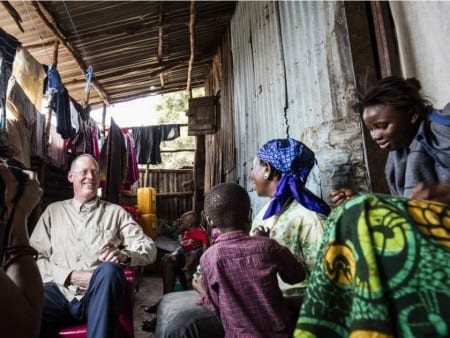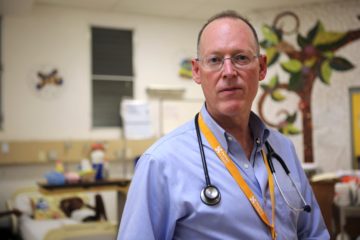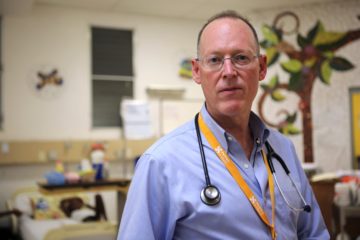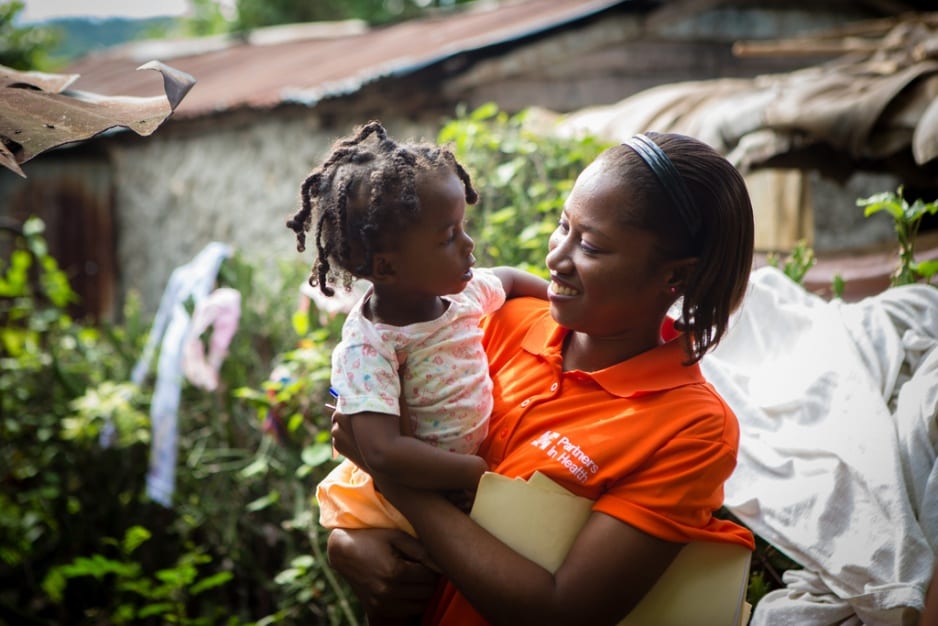Opinion: Humanitarians are having a global impact in fight against disease
By: Don Cayo
Published April 22, 2016/Vancouver Sun
A decade and a half ago, Paul Farmer was directing some strong words — he says he was critiquing and advising, not scolding — at the global health and political establishment for its non-response to the plight of billions who are poor and sick.
It seems to have worked.

Dr. Paul Farmer visits Ebola survivor Yabom Koroma and her family at their home
in the Mountain Court section of Freetown, Sierra Leone, on Dec. 14, 2015.
Photo by Rebecca E. Rollins/Partners In Health
The voice of this Harvard-trained humanitarian, a doctor and anthropologist who has founded and practices in hospitals in some of the poorest countries of the world, was by no means the only one calling on the rich world to do better. But collectively, these advocates for change, the high-profile Farmer prominent among them, have prodded major governments to support (currently at a level of about $4 billion a year) the 14-year-old Global Fund to Fight AIDS, Tuberculosis and Malaria.
“In the year 2000, almost no poor people living with HIV were on HIV treatment,” he said in an interview during a recent visit to Vancouver. “Now there are 15 million.”
The global fund and other initiatives, such as former U.S. president George W. Bush’s massive investment in AIDS prevention and treatment, have turned the former system (what Farmer calls a “neo-liberal, pay-as-you-go, fee-for service approach”) on its ear.
“That’s huge. There’s no other example in human history of a health equity program becoming so ubiquitous.”
But this success should be regarded as just the beginning, he said.
“There are still tons of problems.”
Raising money to address these problems is what took Farmer on a three-city tour of Western Canada. He attended awareness and fundraising events for the Canadian chapter of Partners in Health, the global operation he created to not only build and operate hospitals, but also to develop stronger integrated health systems in places like Haiti, Rwanda, Lesotho, Malawi, Mexico, Russia, Peru, Liberia and Sierra Leone.
Read full article here.



